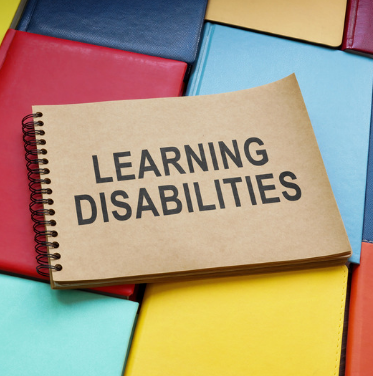Learning Disorders
Learning Disorders Testing & Treatment in Charlotte
Some children are diagnosed with neurologically based processing challenges. This can interfere with learning basic skills such as reading, writing and math. They can also interfere with higher level skills such as organization, time planning, abstract reasoning, long or short-term memory and attention.
Evaluations & Assessments by Learning Specialists
If your child is struggling in school, the first step is typically an evaluation. An evaluation can provide valuable information about your child’s strengths and weaknesses. It should also reveal what type of support is recommended. A full psychological-educational evaluation is required for a child to be diagnosed with a learning disorder.
Educational Specialists can conduct learning evaluations. A child psychologist is usually involved as well.
Evaluations provide diagnostic clarification for a variety of conditions, targeted treatment interventions for specific areas of weakness, providing documentation for the purpose of receiving accommodations in school settings or for standardized tests. These evaluations usually include measurements of attention, verbal reasoning, non-verbal reasoning, memory, visual processing, speed, academic achievement (e.g., reading, writing, math), as well as visual-motor functioning (e.g., handwriting), phonological processing abilities, organization skills and social/emotional functioning.
What are Some Symptoms of Learning Disorders?
All children can experience some level of challenges with learning and using academic skills from time to time. But when the symptoms last six months or more, it may be time for an assessment. The symptoms of a learning disorder in a child can include:
- Struggling with reading, spelling, writing or math at or near the expected age and grade levels.
- Trouble comprehending or following instructions.
- Short term memory challenges.
- Lacking coordination while walking, playing sports or doing things that use small muscles, such as holding a pencil.
- Easily losing homework, schoolbooks or other items.
- Trouble completing homework and assignments on time.
- Acting out or having significant emotional reactions at school.
Seeking Help for Learning Disorders
Early evaluations and treatments are very important because the problem can grow. A child who doesn’t learn to add numbers in elementary school will have a significant challenge with algebra in high school. Children who have learning disorders may also suffer from:
- Anxiety about school
- Depression
- Low self-esteem
- Fatigue
- Lack of motivation
Treatment Options for Learning Disabilities
If your child is diagnosed with a learning disorder, treatments may include:
Individualized educational interventions – a reading specialist, math tutor or other trained professional can help your child learn more effective ways to do schoolwork, study and stay organized.
Individualized Education Program (IEP) – a written plan that sets learning goals and describes the specific special-education services your child needs. Public schools develop IEPs for students whose challenges meet the school system’s guidelines for a learning disorder.
Classroom modifications – these are also known as classroom accommodations. For instance, more time to complete schoolwork or tests. They may be asked to do fewer math problems in assignments. They may also get seated in the front row to cut down on distractions. Sometimes audiobooks are provided so they can listen while reading along with a physical copy.
Therapy – there are multiple therapies that may help. Occupational therapy might improve writing problems. A speech-language therapist can help with language skills.
Medicine – a health care provider might suggest medicine to treat depression or anxiety. Medicines for ADHD may help a child’s ability to focus while in the classroom.
Educational Therapy for Learning Disabilities
Educational Specialists provide the support a student requires to overcome a learning disability, executive functioning weaknesses, or processing concerns. Educational Specialists are experienced in evaluating and treating the underlying deficits in the diagnostic subtypes including dyslexia, dysgraphia and dyscalculia. Educational Specialists develop a holistic treatment plan which addresses each student’s individual learning needs as their difficulties impact school success. Specific therapies include Executive Functioning Tutoring and Orton-Gillingham intervention.
Child & Family Development assists parents in identifying and addressing concerns and then develop comprehensive recommendations to move forward.
Contact us to schedule an assessment today.






